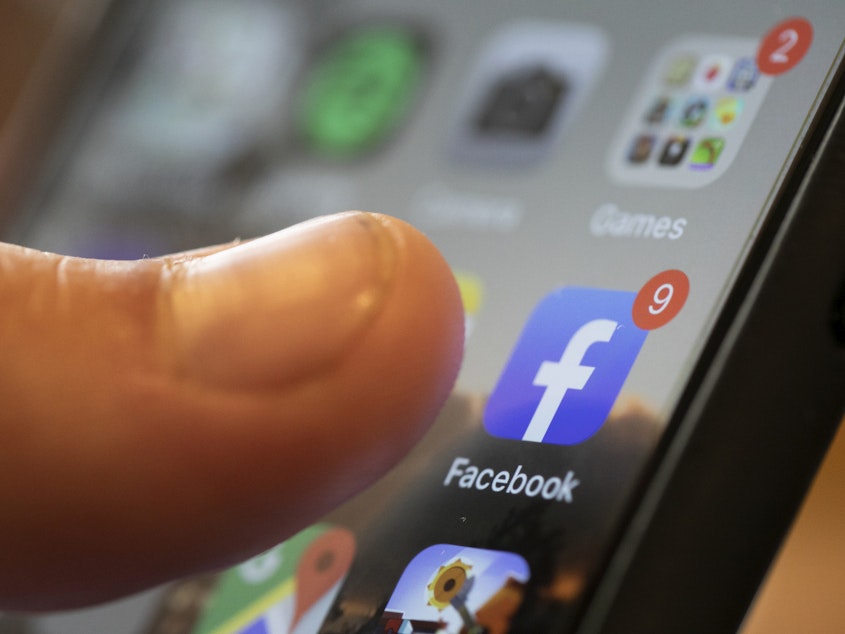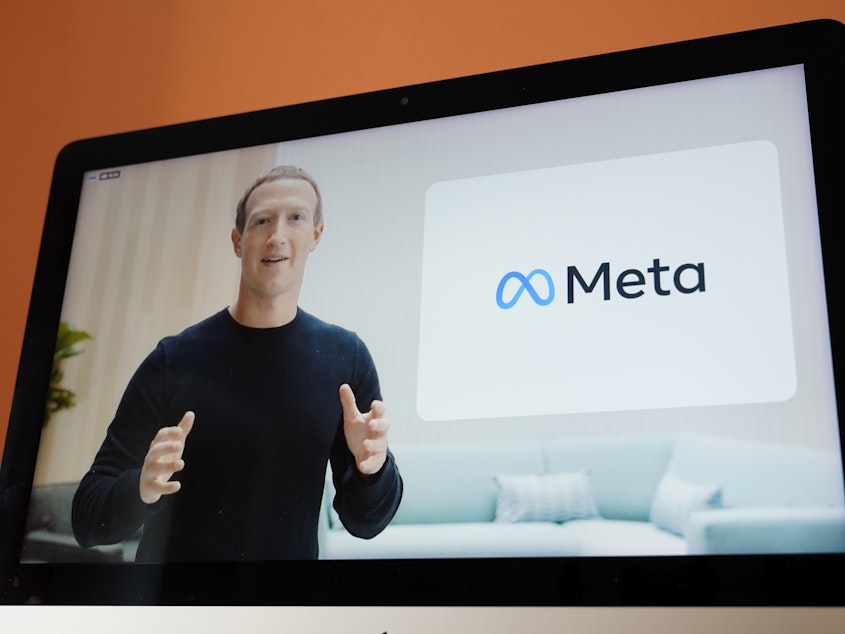Should social media pay for addicting kids? Seattle schools lawsuit gains steam

A year into Seattle Public Schools' lawsuit against social media companies, the case is gaining traction.
More than 50 school districts in Washington state — and dozens more across the country — have joined Seattle’s lawsuit.
Seattle became the first district to sue social media platforms last January, in an effort to hold the companies accountable for a growing youth mental health crisis. The district says it's seeking two outcomes:
- Changes to the "intentional and harmful" business practices
- Money to help schools address the increased need for student mental health services

Sponsored
In court filings, the district alleges social media companies deliberately designed their platforms to target and exploit minors for profit. And, they say, rampant social media addiction has led to more students grappling with mental health concerns. For example, Seattle schools reported a 30% increase in students who reported feeling sad or hopeless almost every day between 2009 and 2019.
Lucía Magis-Weinberg is a psychology professor at the University of Washington whose research focuses on how social media has affected adolescent development.
“Whether it’s related to social media or not, I think schools do so much for young people, and I think that they’re already overstretched, especially coming out of the pandemic,” Magis-Weinberg said.
“They’re often the first point of contact when there’s issues, so we need to do a much better job supporting schools in doing this very, very key task of being the first point of contact.”
Districts that have filed suit over the last year include some of the state’s largest, including Spokane, Kent, Vancouver, and Evergreen.
Sponsored
“We have recognized the impact of social media in our schools and in our students’ lives,” a spokesperson for Evergreen schools said in a statement. The district serves just over 22,000 students in southwestern Washington.
“Our hope is that through this litigation our community and other communities can better support children moving forward,” the statement said.
The case has also drawn support from some of the state’s smallest school systems — like Palisades, a remote district in central Washington that has just 25 students.
“The increased use of and dependency on social media has led to an increase in the number of Plaintiff’s students in crisis, acting out, vandalizing school property, and in need of mental health services,” the district wrote in its 109-page complaint.

Sponsored
In turn, the district says it has had to spend more money, time, and other resources to do things like hire counselors and other medical professionals, repair damaged property, increase disciplinary services, and address bullying and harassment.
Still, the district says, these actions haven’t been enough.
“Even equipped with these resources, Plaintiff cannot keep up with the increased need for mental health services due to the youth mental health crisis,” the complaint reads. “As a result, the rest of Plaintiff’s staff must work in overdrive to help students with mental health concerns.”
Although many people initially thought the lawsuit may amount to nothing more than a publicity stunt, Derek Black, an education law professor at the University of South Carolinas, says he’s always found the financial aspect of the argument to be compelling.
“It’s not just trying to grab a headline, but there’s actually a serious claim here,” Black said.
Sponsored
RELATED: The truth about teens, social media, and the mental health crisis
He compared the case to the way some state governments successfully sued the tobacco industry by making a clear connection between skyrocketing smoking-related health issues and the toll on the health care systems.
“If that’s how you broke the back of big tobacco,” he said, “I don’t see why you can’t break the back of social media here.”
Black believes the more districts that file suit, the stronger the case gets. And it’s not just about money.
“This is a monster that’s out of control and we need the courts not just to make the monster pay for the damages that it produces each year; we need the monster to stop eating children,” he said. “The schools happen to be one of the few that may be in a position to go after them.”
Sponsored
Facing pressure from this lawsuit and others over the last year, social media companies have pledged to ramp up safety features, and some are advocating for clearer, more consistent federal legislation to give parents more control over their children’s online activity.

For example, leaders of Meta, the company behind Facebook, Instagram, and WhatsApp, are pushing for a new law requiring kids under age 16 to get parental approval before downloading an app.
While parents are a key part to making social media safer for kids, Magis-Weinberg said the companies need to do more.
“Parents always play a huge role in their children’s lives,” she said. “But we can’t … put the whole responsibility and the whole burden on parents.”
Another law Meta leaders have proposed would require app stores to verify age, and provide apps with the information.
In a blog earlier this month, Antigone Davis, the global head of safety policy at Meta, said knowing a user’s age could help social media apps “place teens in the right experience for their age group.” Davis said parents already provide that information when they purchase their teen’s phone and set up accounts, so government IDs and other sensitive information wouldn't be necessary.
But Magis-Weinberg said some teens find value in joining social media platforms anonymously, and this could take that away. One bright spot of social media, she said, is the ability for young people to connect with people in their communities.
One example could be LGBTQ+ youth who turn to social media when they don’t feel comfortable or safe opening up or asking for support at school or home. It could also raise problems for the millions of undocumented immigrants across the U.S. who may not have documents to prove their age.
“I’m thinking of youth who are marginalized in many ways and aren’t comfortable with people in their community knowing what they’re asking, what they’re thinking,” Magis-Weinberg said. “It’s not really easy to solve.”




